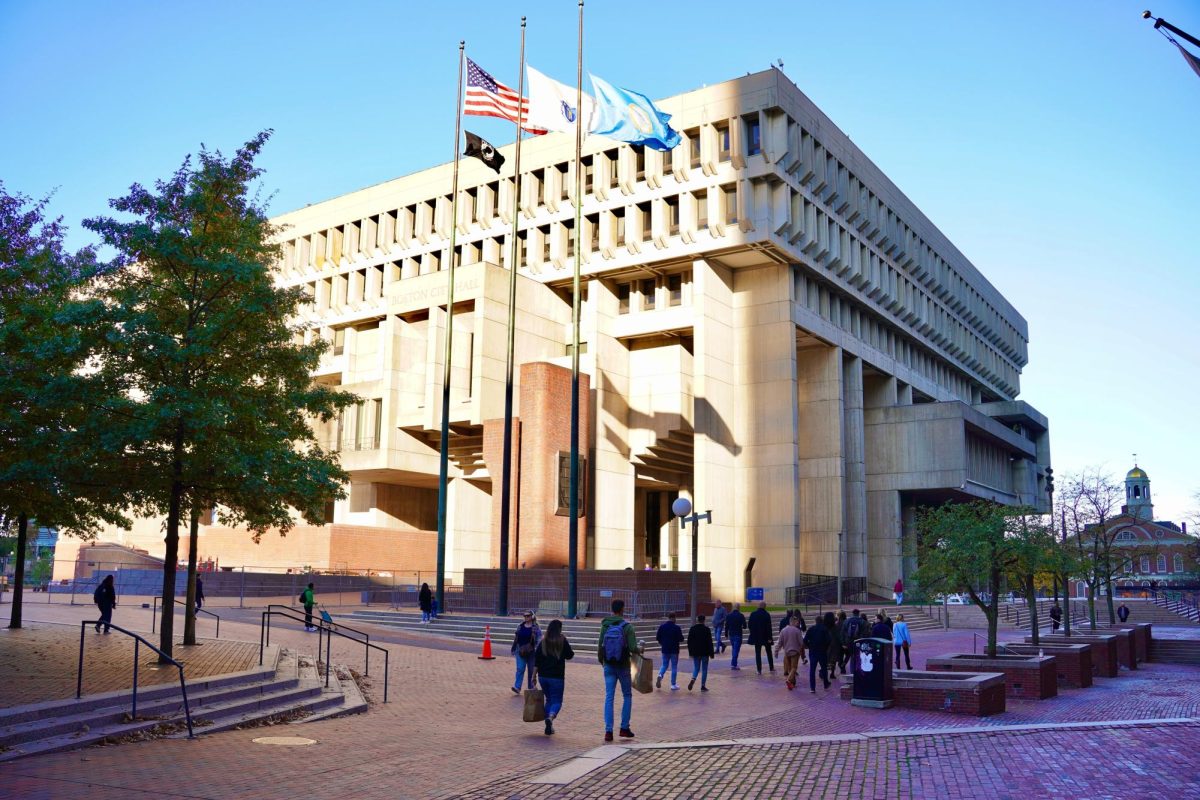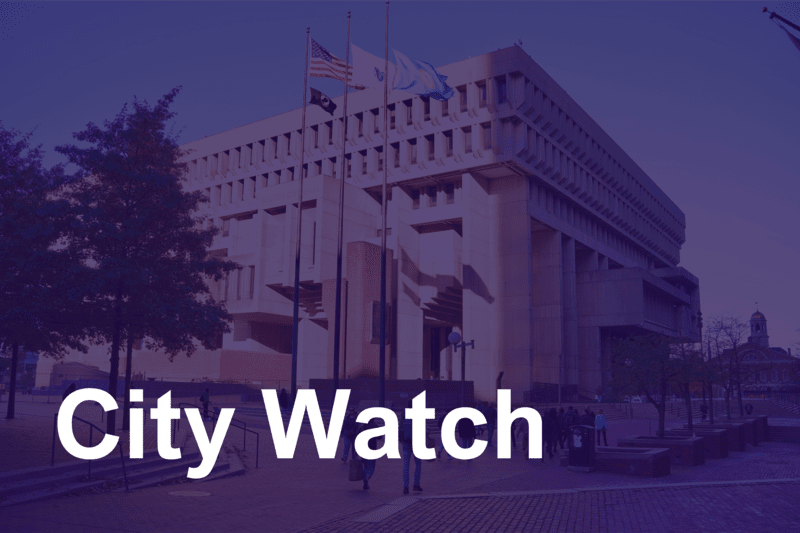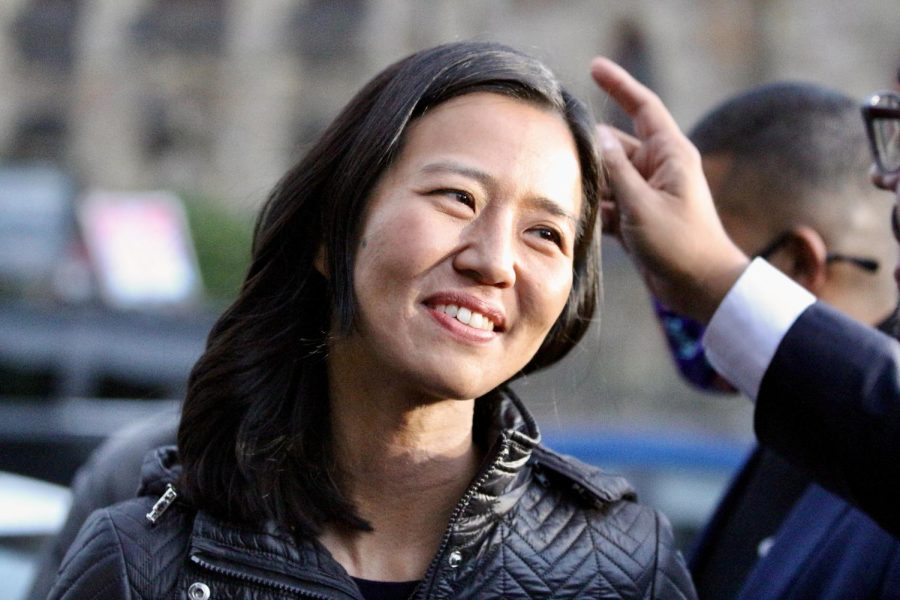In the Feb. 14 session, the city council continued to build on the theme of unity among the districts. In particular, three proposals meant to improve Boston emergency resources, congestion pricing in the city and environmental equity displayed how the city is working to create policy impacting the entire city.
The best examples of this could be seen in a docket asking for a meeting on the city council’s rules by Councilor Ed Flynn. Flynn, the former president, explained that not only would a hearing on the rules could benefit new councilors, it can also be used to ensure that incumbents are also held to the same understanding.
In response, Councilor Julia Mejia noted that the last attempt at a meeting of this caliber in 2022 was held in private, and noted a lack of attendance from councilors. The proposal itself specifically targeted that aspect of the meeting, making it a public session rather than a private discussion between city representatives.
Flynn himself has been guilty of less-than-perfect council rule following. Incidents of late filing with regards to his reproposal of the Homeland Security Grant, for example, will likely be among the topics mentioned in the rules meeting, as Council President Ruthzee Louijeune has actively fought against late files within the chamber.
The chamber was respectful as the meeting went through. With that sense of district-wide collaboration in mind, let’s review what else occurred in this week’s session.
Boston Symphony Orchestra honors Seji Ozawa
Those in attendance in the Iannella Chamber were greeted by a performance from Boston Symphony Orchestra, or BSO, cellist Owen Young, representing the symphony in memory of legendary conductor Seiji Ozawa. The conductor served the orchestra from 1973 to 2002 and passed away on Feb. 6.
Ozawa “brought global recognition to this city,” Councilor Ben Weber said, and was “as big of an export as Larry Bird.” Among his biggest achievements include being awarded the Order of Culture from the government of Japan, receiving both a Grammy and an Emmy award for his conducting and participating in a groundbreaking tour with the BSO in China in 1979.
In the council chamber, Young performed the Sarabande movement from Johanne Sebastian Bach’s Cello Suite No. 5 to the audience, and was met with a standing ovation by both the council and the public.
Ed Flynn wants in-person meetings back really badly
Flynn successfully ordered for a hearing to discuss “the community process for transportation planning in the City of Boston.” On this issue, he was met by pushback from members of the public online.
“Residents and local businesses who live in a neighborhood and pay taxes should have a say in what takes place there, gets changed, and piloted in the community,” Flynn’s proposal reads.
The debate on this proposal stems from Flynn’s emphasizing of the word “neighborhood” in the filing. A popular X, formerly Twitter, user critiqued the councilor’s choice of vocabulary and the premise of the request.
“I live in Ashmont and work in the Seaport,” said WelcomeToDot. “Do I really have to waste an hour of my life to dial into a South Boston meeting to say I need better public transportation and bike options to get to work?” The private account’s tweet was recorded at 87 likes as opposed to Flynn’s 8.
Mejia commented on this as well, saying “we must start thinking of [transportation] as a whole city. We must think of decisions as a collective,” rather than a neighborhood issue.
Flynn also acknowledged the importance of a hybrid option in his speech, but referenced it when making the argument for in-person hearings. “Hybrid options are essential for those without computer access or computer literacy.”
In the past, public hearings have slowed progress on city issues. That was the case with the Tremont Street Redesign. In 2017, the Boston Transportation Department began holding public meetings on the street’s revitalization project. The South End Landmark District Commission approved the design project years later, on May 7, 2020 in a Zoom call which lasted until midnight. The redesign finally began in 2022 and dramatically reduced the number of car crashes in 2023.
Hearing approved for English for Speakers of Other Languages classes for BPS parents
A hearing led by Councilor Tania Fernandes Anderson was passed on how more Boston Public Schools could potentially start English for Speakers of Other Languages, or ESOL, classes for immigrant families seeking to learn English.
Given that 32% of students in Boston Public Schools are designated as English learners – native in another language but not fully proficient in English – there is likely a greater number of parents who are unable to engage in their children’s education with nuance due to not being fluent in English.
Councilors acknowledged the work of nonprofits already seeking to achieve English fluency in parents as a part of the proposal. In particular, Boston Chinatown Neighborhood Center and English for New Bostonians were cited as two leaders in the space.
Adult education is already present in some areas of the city. Councilor Liz Breadon highlighted Gardner Pilot Academy as an example of a school where ESOL classes for adults are actively ongoing.
“The children’s parents were so proud,” said Breadon. “It inspires the students to work harder and is a moment of pride for all concerned.”
City Council recognizes more needs to be done about human trafficking
Louijeune thanked the constituents who recognized the issue of human trafficking in the city, bringing it to her attention with regards to her resolution to combat the problem.
“I know that previous councilors have filed this every year, in the month of January, the month of National Human Trafficking Awareness month,” Louijeune said. “I just wanted us to be on the record in recognizing that human trafficking is an issue that occurs all around the country, even here in the city of Boston and that we need to be mindful of our vulnerable populations.”
Louijeune also thanked the Commonwealth’s Anti-Trafficking Task Force. In the past year, the Justice Department has published 17 press releases regarding human trafficking in the state. Breadon shared an anecdote of how this impacts Boston.
“It was only a few years ago right in the center of Oak Square, law enforcement did a raid and uncovered a human trafficking operation,” Breadon said. “That was right there in front of our eyes and we didn’t really see it.”
Flynn also thanked Local 779, the union for hotel and restaurant workers for their part in identifying human trafficking taking place. Numbers from the National Human Trafficking Hotline identified hospitality and food service as two of the largest job markets for forced labor.
Louijeune ended the discussion by acknowledging the nonprofits in the city fighting against human trafficking, which include the Polaris Project, the EVA Center, and My Life My Choice, among others located on the Attorney General’s website.
Resolution for Gaza ceasefire quickly withdrawn
A proposal for a city council statement on an end to the ongoing conflict in Gaza was quickly withdrawn by Weber stating that the proposal was unintentionally divisive.
Weber, who drafted the bill, stated that “as a Jewish person I have always felt a strong connection to Israel, [but] being Jewish does not mean I must agree to every decision the state of Israel makes.”
He noted that he drafted this proposal after speaking with Jewish and Palestinian leaders in the state, including Palestinian American lawyer Sammy Nabulsi. Weber stated he “left those conversations more hopeful than [he]began” and that “there was a lot of common ground between us all.”
It is unclear as to what concerns were brought up to Weber prior to the council meeting which required the bill to be withdrawn. Weber told the Boston Globe that both Fernandes Anderson and Flynn were involved in the drafting of the proposal. The cities of Cambridge, Medford, and Somerville have all published resolutions asking for a ceasefire.




